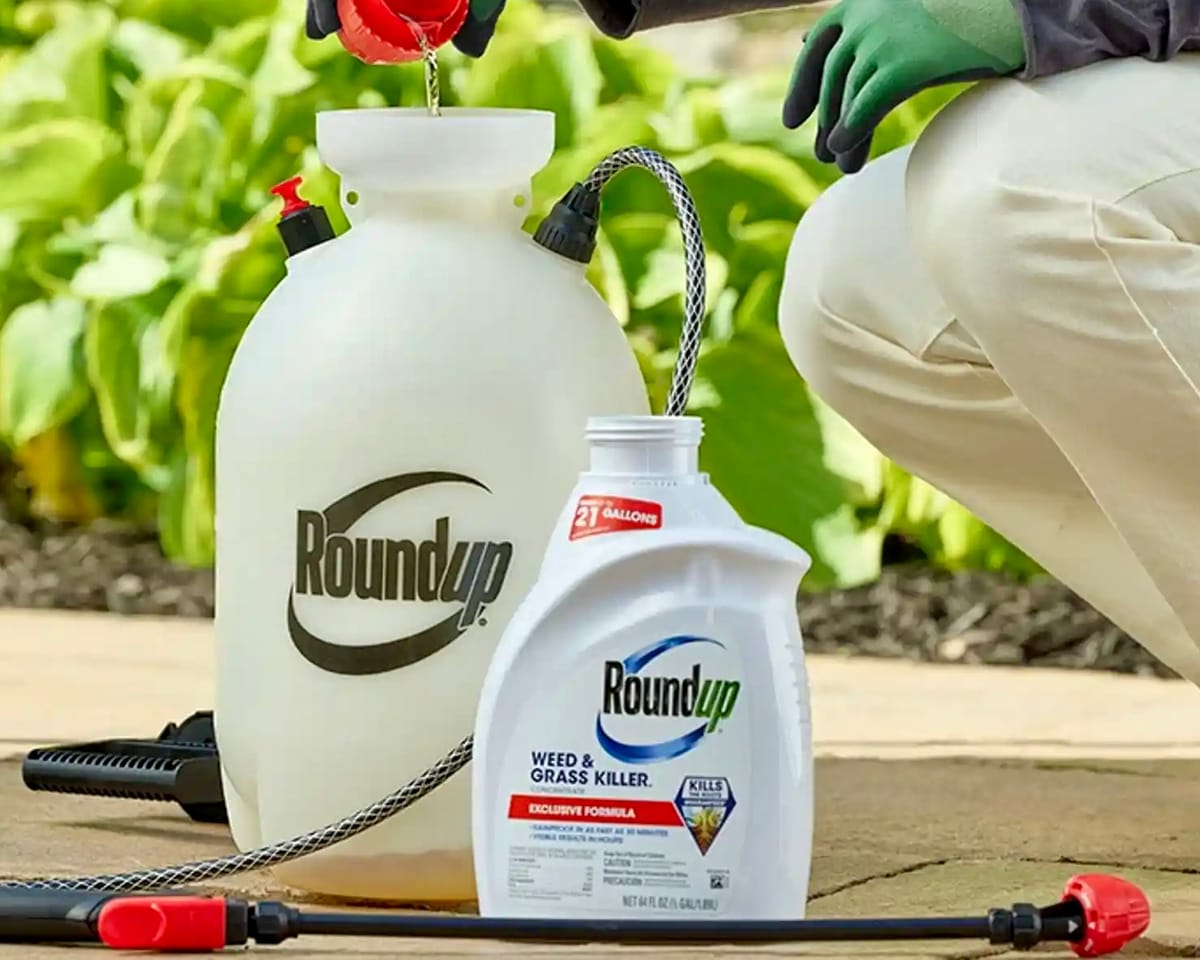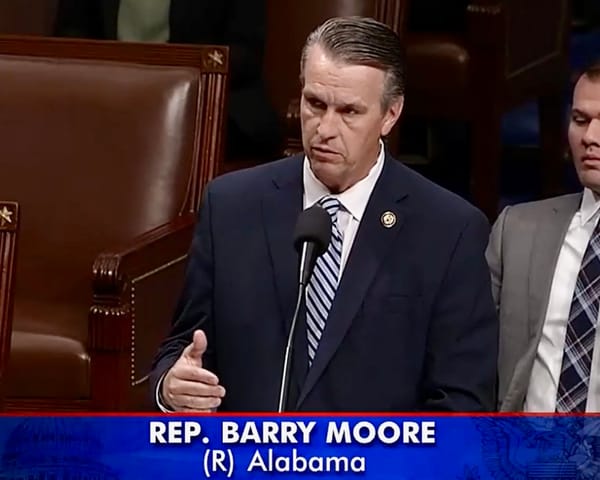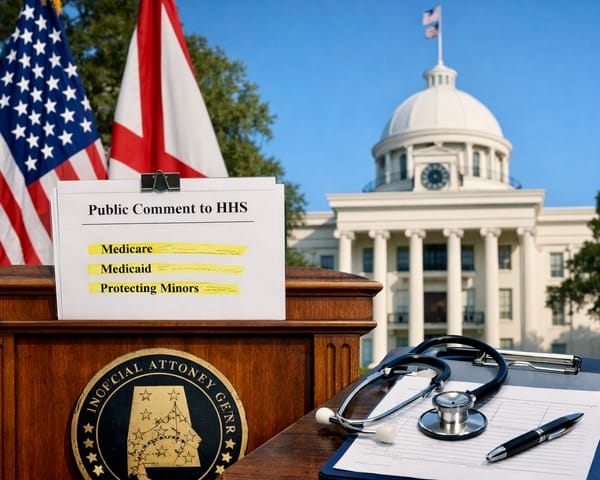House Rider Could Give Roundup Makers Vaccine-Style Immunity — While Threats to Public Health Multiply
Section 453 would prohibit the EPA from taking any action based on new health studies through 2035

A little-noticed clause in the House’s fiscal-year 2026 Interior spending bill—Section 453—could shield pesticide manufacturers like Bayer-Monsanto from Roundup-related lawsuits, offering them a vaccine-style legal immunity similar to what drug makers enjoy under the PREP Act.
Under Section 453, the EPA would be barred from updating labels, issuing warnings, or taking any action based on new health studies unless it conducts a full 15-year risk review. Since glyphosate was last assessed in 2020, any new action would be blocked until at least 2035—even if fresh scientific evidence or court decisions suggest otherwise.
If this far-ranging protection structure seems eerily familiar, that’s because it is: just as vaccines and other pandemic medical products gained legal immunity under the PREP Act, so too would herbicide makers under Section 453. The PREP Act protects pharmaceutical firms during declared emergencies. Now, pesticide companies seek comparable protection against new liability for Roundup and other chemicals, at least through 2035.
Remember when the FDA wanted to wait 55 years to release the Pfizer COVID vaccine trial data?
But, there is pushback on both fronts.
Rep. Thomas Massie (R‑KY) recently introduced the PREP Repeal Act (H.R. 4388), which would remove the liability shield for vaccine and pandemic‑countermeasure makers. “Medical malpractice martial law must end,” Massie said.
Meanwhile, advocates point out that without Section 453, EPA could better react to health threats tied to glyphosate—an ingredient increasingly detected in air, land, water and food.
Glyphosate is the world’s most used herbicide. Today, it shows up in unexpected ways:
- Inside us: A 2022 CDC analysis found glyphosate in 87% of American children tested, and 80% of adults—mainly from food.
- In the environment: It’s regularly detected in rivers, soils and farm dust. Globally, tests find it in surface water, sediments and wildlife—sometimes at levels above safety standards.
- Through food: Glyphosate residues appear in many grains and legumes, including popular cereals and hummus.
Mounting scientific evidence suggests glyphosate may disrupt ecosystems and human health:
- A 2023 meta-analysis links exposure to glyphosate-based herbicides with an elevated risk of non-Hodgkin lymphoma.
- Laboratory studies show it can damage DNA, affect reproductive systems, and alter gut microbiomes.
- A long-term study found a 500% increase in glyphosate levels among southern Californians over two decades—and linked it to liver disease in lab animals.
Although agencies like the EPA maintain used-as-directed glyphosate is safe, critics warn that real-world exposure and evolving science paint a different picture.
About 67,000 Americans are suing Bayer-Monsanto, alleging that Roundup caused cancer—a legal wave that came after a $2.25 billion jury verdict in 2024.
If Section 453 passes, many of those suits may be dismissed before reaching trial—on the grounds that federal law now preempts state-level or new science-based claims.
“This locks in the EPA’s 2020 finding and stops them from acting on new evidence,” independent journalist Breeauna Sagdal warned. “The next review isn’t until 2035.”
Supporters argue Section 453 prevents a scattered regulatory patchwork, ensuring national consistency. Critics say it would destroy accountability, silencing new science and punishing victims.
At the same time, Rep. Massie and his allies are urging repeal of the PREP Act. If successful, both vaccine makers and chemical giants would lose sweeping legal shields.
Such a shift could open fresh judicial doors for people harmed by drugs or herbicides alike—but only if lawmakers act.
With the House Appropriations Committee set to vote on the FY26 Interior Appropriations on Tuesday, July 22, public pressure remains the only counterbalance. There are no Alabama Representatives on the Committee, but calls to the following Committee Members asking them to REMOVE Section 453 from H.R. 9043–the FY26 Interior Appropriations bill—may be appropriate:
Republicans:
- Rep. Mike Simpson (ID-02): (202) 225-5531
- Rep. Michael Cloud (TX-27): (202) 225-7742
- Rep. Tom Cole (OK-04): (202) 225-6165
- Rep. Jake Ellzey (TX-06): (202) 225-2002
- Rep. Celeste Maloy (UT-02): (202) 225-9730
- Rep. Guy Reschenthaler (PA-14): (202) 225-2065
- Rep. Ryan Zinke (MT-01): (202) 225-5628
Democrats:
- Rep. James “Jim” Clyburn (SC-06): (202) 225-3315
- Rep. Rosa DeLauro (CT-03): (202) 225-3661
- Rep. Josh Harder (CA-09): (202) 225-4540
- Rep. Betty McCollum (MN-04): (202) 225-6631
- Rep. Chellie Pingree (ME-01): (202) 225-6116
Rep. Marjorie Taylor Greene (R-GA) has already publicly opposed the provision. Call to thank her and show support: (202) 225-5211
Calls to your Representative to express your support for Rep. Massie and H.R. 4388, the PREP Repeal Act, may also be appropriate.




